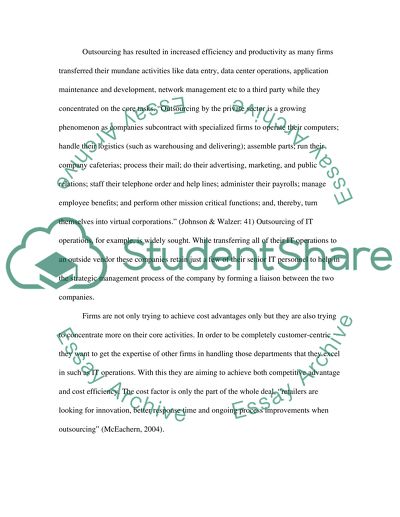Cite this document
(“Ethical considerations: outsourcing Essay Example | Topics and Well Written Essays - 1500 words”, n.d.)
Ethical considerations: outsourcing Essay Example | Topics and Well Written Essays - 1500 words. Retrieved from https://studentshare.org/miscellaneous/1524547-ethical-considerations-outsourcing
Ethical considerations: outsourcing Essay Example | Topics and Well Written Essays - 1500 words. Retrieved from https://studentshare.org/miscellaneous/1524547-ethical-considerations-outsourcing
(Ethical Considerations: Outsourcing Essay Example | Topics and Well Written Essays - 1500 Words)
Ethical Considerations: Outsourcing Essay Example | Topics and Well Written Essays - 1500 Words. https://studentshare.org/miscellaneous/1524547-ethical-considerations-outsourcing.
Ethical Considerations: Outsourcing Essay Example | Topics and Well Written Essays - 1500 Words. https://studentshare.org/miscellaneous/1524547-ethical-considerations-outsourcing.
“Ethical Considerations: Outsourcing Essay Example | Topics and Well Written Essays - 1500 Words”, n.d. https://studentshare.org/miscellaneous/1524547-ethical-considerations-outsourcing.


